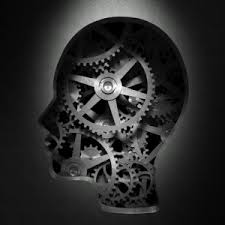Troy Headrick, aka BernardDogs in the Forum, gives some tips in how to avoid online habits that are not conducive to live play
When I ran Cross-Country in High School, our coach would video tape us as we ran so that we could then view the tape and critique our form. Despite posting decent times, I’ve always been an awkward runner. My legs kick out to the side in such an extreme manner that you’d swear Lawrence Taylor had gotten to them just as he did for Joe Theisman that memorable Monday night. I’ve always hated watching myself run, but my form really does improve when I pay deliberate attention to my physical mechanics.
The other night at my home game, my 10 year old daughter landed a rainbow flop of 7-J-2. If Gabby is in a hand after the flop, she’s got something. I had her on the Jack, as she rarely even enters a hand without a face card. She and I were the only takers for the turn, but that ended when she gave the 9 that landed such a double take that her glasses slid half-way around her face. I told her to keep my chips with her J-9 and she broke down into her giggle that will always give her away should her double-takes stay controlled (she did indeed have the J-9). Later that game she faked this giggle and bluffed my longtime friend out of a $12 pot.
My point is this. I’m fairly comfortable in knowing that I’ve overcome my obvious tells with which Gabby is still struggling. Nonetheless, I’ve been paying deliberate attention to my physical posture during my on-line play as if I’m actually watching a recording of myself in my High School locker room. Because I live in an area that has no local Brick and Mortar casinos, my live games are pretty much limited to when I travel or when I make a special trip to a tournament. I’ve recently begun wondering about habits I might be developing in the comfort of my study while playing on-line that may be leading to subtle tells that are certain to impact me negatively when I finally make the final table at the WSOP against Mr. Ivey (or Mr. Hilger).
I envision myself slumping in my chair through 4 hours of folding my marginal hands when I’m finally dealt two monster hole cards. I shoot myself into a straight-backed posture and call my life-partner to the rail and tell her to get ready for a good hand. Phil and Matthew both fold and I manage to walk away with nothing more than the blinds.
Allow me to offer the following behaviors I’ve recently been noticing in myself that I feel may be subtly creating habits that would not be conducive to solid live play.
● During those long periods of an on-line tournament where I am patiently waiting for a playable hand, I take a very relaxed and slouched posture in my chair. Once I know I’m going to play my cards, I sit up straight, pull in my chair, and get ready for action. If I were to even approximate this difference in posture during a live game, I would easily be giving away some valuable information to my opponents. If this then supplements any sort of table image that has developed of being a player who only plays key cards, I may lose a lot of action when I need it the most.
● On a really good hand, especially once the flop lands, I have called in my partner from the next room. Sometimes she comes and watches and sometimes she just asks for the results. However, I have grown accustomed to looking for attention and showing enthusiasm once I expect positive results. How might this subtly influence my behavior when I eventually find myself with the nuts in a live action game?
● In an effort to discipline myself into folding those “almost playable” hole cards, I have taken to clicking the “fold” button when I’m certain that I won’t be entering the hand. When I find myself in late position with no callers, and it would be more appropriate to bring these cards into play, I unclick the fold button and play accordingly. In live action we’ve all come to realize the value of watching the non-verbal indicators of the players to our left to predict the likelihood that they’ll enter the hand. To what degree am I shaping bad habits with my on-line “fold click” that would translate into live action “disengaged” tells for the opponents to my right?
This compares to the “check/fold” button that we’ve all been warned against using. I’ve gained a lot of blind steals when I’m the sole caller in the small blind and the opponent to my left has indicated that he or she is prone to clicking that “check/fold” button. If it happens once, I’ll raise out of the small blind with just about anything – secure in the knowledge that my opponent has quite likely already signed over the blind. Again, how does such detached behavior slowly create bad habits that become visual tells for our live games?
As Howard Lederer often states, you have to go into a tournament expecting to win it. To do otherwise pulls you from your mental game that is required to win. Accordingly, I have begun to practice my physical game while sitting alone in the comfort of my own study. I am hopefully influencing my behavior so that I subconsciously associate card playing with these shaped habits rather than with sloppy physical posture. My specific strategies are as follows:
● I have placed a chair at my computer desk that more closely resembles a chair I might find in a casino card room. It doesn’t recline. It’s not all that cushioned. There is no headrest. I remind myself to use the edge of my desk as if it is the edge of the poker table and try to lean my elbows upon it as if I’m engaged in live play. If I sit back, I cross my arms and practice appearing to still be engaged. Sometimes I even go so far as to stack some chips in front of me (this also allows me to practice my intimidating chip-handling tricks).
● I practice not reacting to cards that show up. I no longer call in others to watch a great hand. While I’m pretty comfortable with my ability to not disclose solid hole cards with my eyes or my facial features, I practice keeping my heart rate and my breathing in control so as not to become flushed or have my pulse quicken which are both visible indicators of a solid hand.
● I practice not reaching for the mouse the second I know I’m going to use it just as I would not start grabbing my chips before the action is on me in a live game.
● I sometimes cover my screen with a post-it note in the spot where my cards show up. In doing so, I practice the ability to look at my cards once and then not again. Hopefully, this will train me to not have to confirm that I’ve hit the flush or the straight by giving my hole cards one last look.
● In submitting my draft of this article to Matthew, he offered the suggestion of training yourself to keep mental track of the amount of money in the pot rather than relying on the automatic tally that the on-line sites provide. Your live dealer won’t be keeping track of and calling out your pot odds for you.
● Matthew also suggests training yourself to keep your eyes on the icon of the opponents to your left rather than on the cards as they flop. Once you’re playing in a live game, you’ll want to be much more interested in their reaction to the flop than you are in the flop itself.
● Finally, I simply watch the action when I’m not in it. Certainly, this is important behavior to employ in order to learn the trends of your opponents, but it also serves to keep you appearing as always mentally present. I’ll still put in a movie during those long dry spells of an on-line tournament, but I’m much more conscious about shaping my behaviors that show me as always engaged.
On-line poker has been and continues to be a fantastic and marginally profitable endeavor for me. The benefits of always having an available game that I can play in the comfort of my own home (be that in my underwear or my finest final table attire) are countless. As I continue to improve my game with the full intention of inevitably making those big final tables, it is important that I capitalize on the full potential of this on-line training environment (while building my bankroll, of course). Thinking like a champion is the crucial first step toward becoming a champion. Play well.
Submit your review | |



